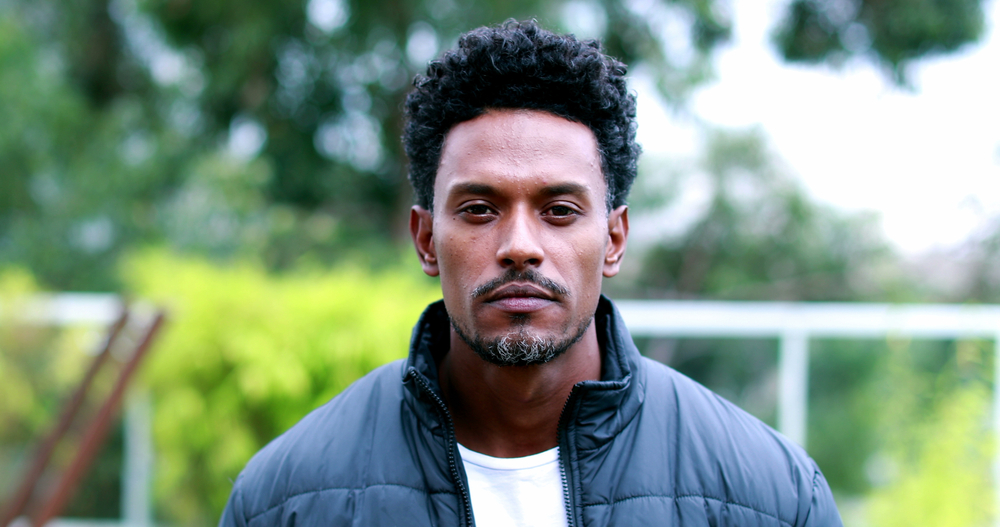Sometimes our words betray the pain we’re trying to hide. While we might think we’re keeping our unhappiness under wraps, certain phrases slip out almost daily, signaling to the world that we’re drowning in plain sight. Here are the everyday expressions that scream “I’m not okay” even when we’re trying to convince ourselves otherwise.
1. “I’m Fine, Just Tired.”

“Tired” becomes code for overwhelmed, depressed, anxious, or just being unable to keep pretending. It’s the socially acceptable way to acknowledge you’re not okay without actually having to explain why. The thing is, you’ve been “just tired” for months now, maybe years. When someone finally points out that you say this every day, you’ll probably respond that you’re—you guessed it—just tired of them noticing.
2. “It Is What It Is.”

Every time you say this, you’re really saying “I’ve given up hoping for better.” It’s become your automated response to everything from minor inconveniences to major heartbreaks, a verbal shrug that masks deep resignation. You’re not embracing reality, you’re waving the white flag at life. The frequency with which you use this phrase directly correlates with how many dreams you’ve stopped chasing, how many boundaries you’ve stopped setting, and how many standards you’ve lowered until they’re practically on the ground.
3. “I’ll Just Do It Myself.”

While this sounds like independence, it’s actually isolation. You’re not saying this because you’re capable—though you certainly are—you’re saying it because you’ve lost faith in others and, more importantly, in your worth of receiving help. It’s become your mantra not because you prefer working alone, but because you’ve convinced yourself that depending on others leads to inevitable disappointment.
4. “I Don’t Care Anymore.”

The ultimate lie unhappy people tell themselves. You do care—in fact, you probably care so much it hurts, which is exactly why you’re trying to convince yourself and everyone else that you don’t. This phrase protects you from the vulnerability of admitting how deeply things affect you. The more often you say it, the more it reveals just how much you’re actually carrying inside.
5. “Everything Always Goes Wrong.”

This is your depression’s greatest hit, playing on repeat. When you say this, you’re not describing reality, you’re revealing your distorted lens. You’ve become so accustomed to expecting the worst that you’re actually more comfortable with failure than success. Every time something good happens, you’re already bracing for the other shoe to drop, and when it does, this phrase is ready on your lips.
6. “I’m Used to It.”

You say this about bad treatment, uncomfortable situations, and pain that should never be normalized. It’s not actually adaptation, nope, it’s the sound of your spirit slowly accepting less than it deserves. Each time you say this phrase, you’re telling yourself that discomfort is your natural habitat, that you don’t deserve better, and that this is just your lot in life.
7. “No One Gets It.”

While this sounds like frustration with others’ lack of understanding, it’s really about how deeply alone you feel in your pain. You’ve stopped trying to explain because it’s easier to assume no one will understand than to risk being vulnerable and still feeling misunderstood. This phrase has become both your excuse for isolation and your justification for not seeking help. The cruel irony is that the more you say it, the truer it becomes—not because others can’t understand, but because you’ve stopped giving them the chance to try.
8. “I Should Be Grateful.”

You use it to invalidate your own feelings, to shame yourself for not being happier with what you have. It’s the phrase you use to beat yourself up for feeling bad when others “have it worse.” Every time you say this, you’re not practicing gratitude—you’re practicing self-denial, adding shame to your unhappiness like a toxic cherry on top of a big ol’ misery sundae.
9. “It’s Not a Big Deal.”

The mantra of someone who’s learned to minimize their own pain. You say this about everything from minor slights to major violations of your boundaries. It’s not actually about the size of the deal—it’s about how small you’ve learned to make yourself to avoid being seen as difficult or demanding. Each time you dismiss your own feelings with these words, you’re teaching others (and yourself) that your comfort and concerns don’t matter.
10. “I’m Just Not Lucky.”

This isn’t about luck—it’s about how you’ve internalized every disappointment as a personal defect rather than circumstance. When you say this, you’re really expressing your belief that you’re somehow cosmically marked for unhappiness. It’s become your explanation for why others succeed while you struggle, why happiness seems to come easily to everyone else while you’re still searching for it.
11. “Nobody Asked.”

The defensive shield of someone who’s been made to feel their thoughts, feelings, and presence are unwelcome. You use this to beat others to the punch, to reject yourself before others get the chance. It’s not just self-deprecation, it’s a preemptive strike against potential criticism, revealing how deeply you’ve internalized past dismissals.
12. “I Don’t Want to Bother Anyone.”

You’ve convinced yourself that your mere existence is an imposition on others. This phrase reveals how you’ve learned to make yourself smaller, quieter, and less needy, thinking that taking up less space will somehow make you more worthy of the space you occupy.
13. “Nothing Makes Me Happy Anymore.”

This isn’t just an observation—it’s a confession of how thoroughly depression has colonized your world. When you say this, you’re describing how the colors have faded from your life, how even things that used to bring joy now feel flat and meaningless. It’s not actually that nothing brings happiness; it’s that you’ve lost the ability to feel it, like trying to taste food when you have a cold.
14. “It’s Always Something.”

This phrase reveals how you’ve come to view life as a series of problems to endure rather than experiences to live through. It’s not just about things going wrong; it’s about how you’ve come to expect disaster around every corner, how you’ve lost the ability to see good things as anything but the setup for the next disappointment.
15. “I’m Just Existing.”

Perhaps the most honest phrase unhappy people use is the raw admission that you’re going through the motions without actually living. When you say this, you’re acknowledging the gap between surviving and thriving, between breathing and being alive. It’s not just a statement of fact; it’s a cry for help wrapped in casual conversation.








